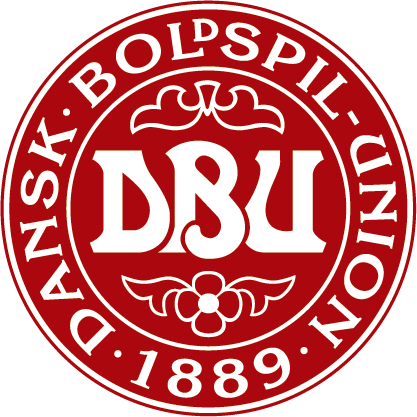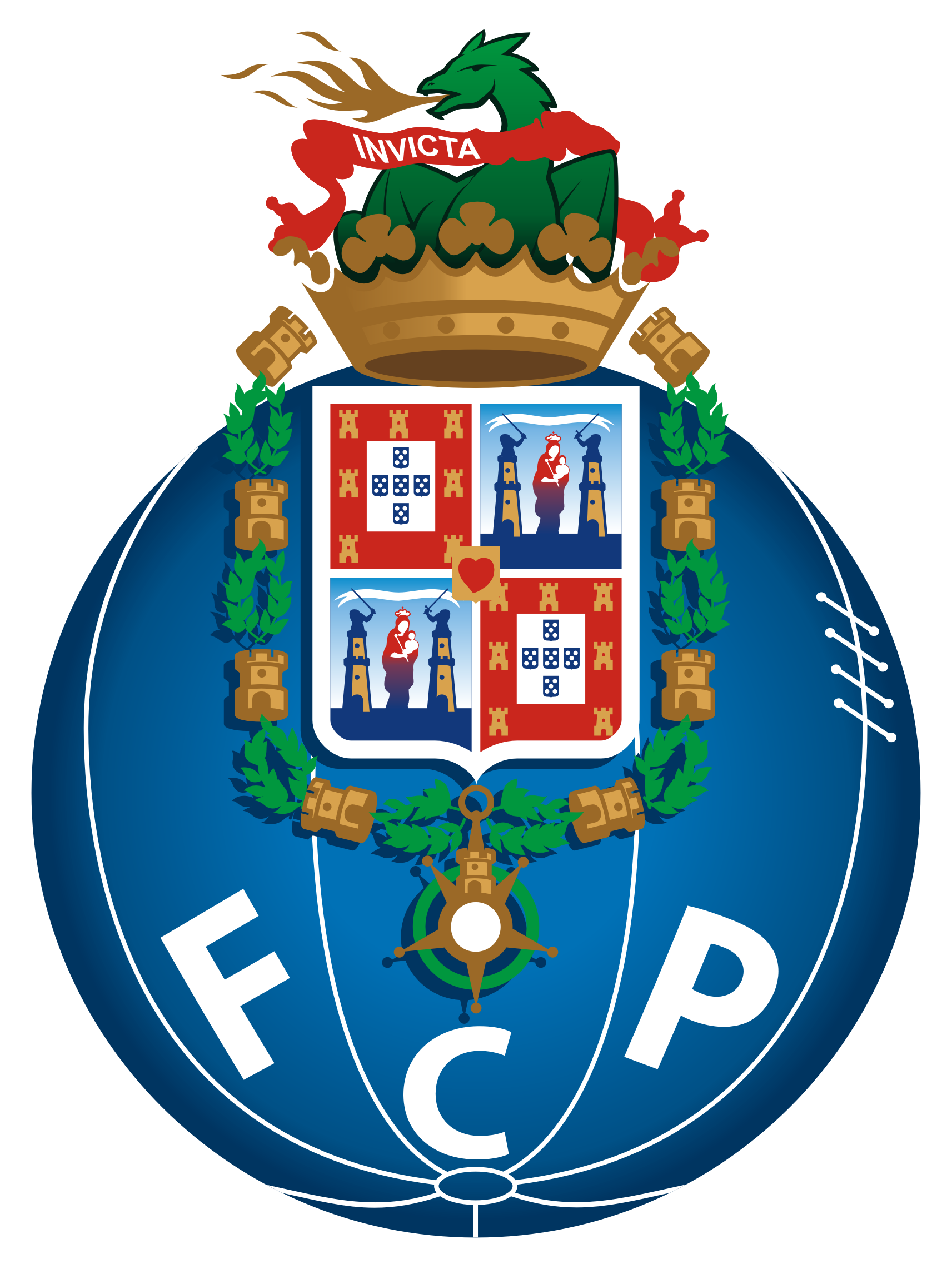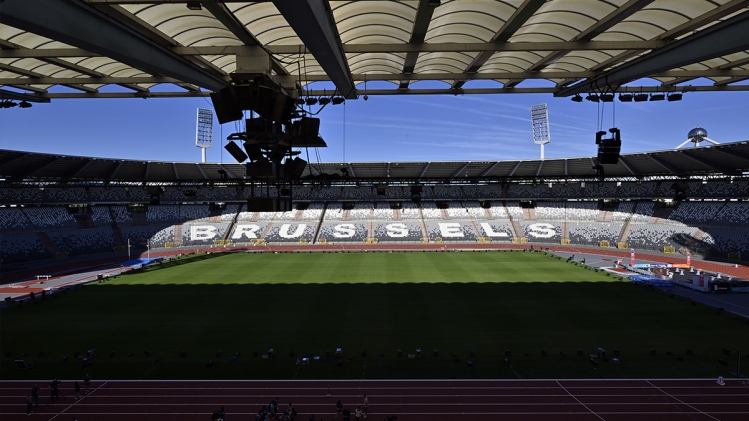ACCESS project concludes with a dynamic and inspiring Final Conference at the King Baudouin Stadium in Brussels
“Achieving Circularity in Cities through Environmental Sustainability in Sports” – such was the full name of the ACCESS project, and also the title of its final conference.
Hosted by lead project partner ACR+ together with fellow ACCESS partners – the Sant’Anna School of Advanced Studies, the Football Associations of Denmark and Wales, the Gaelic Athletic Association and FC Porto – the conference took place over the course of the 14 May 2025 in the historic King Baudouin Stadium in Brussels.
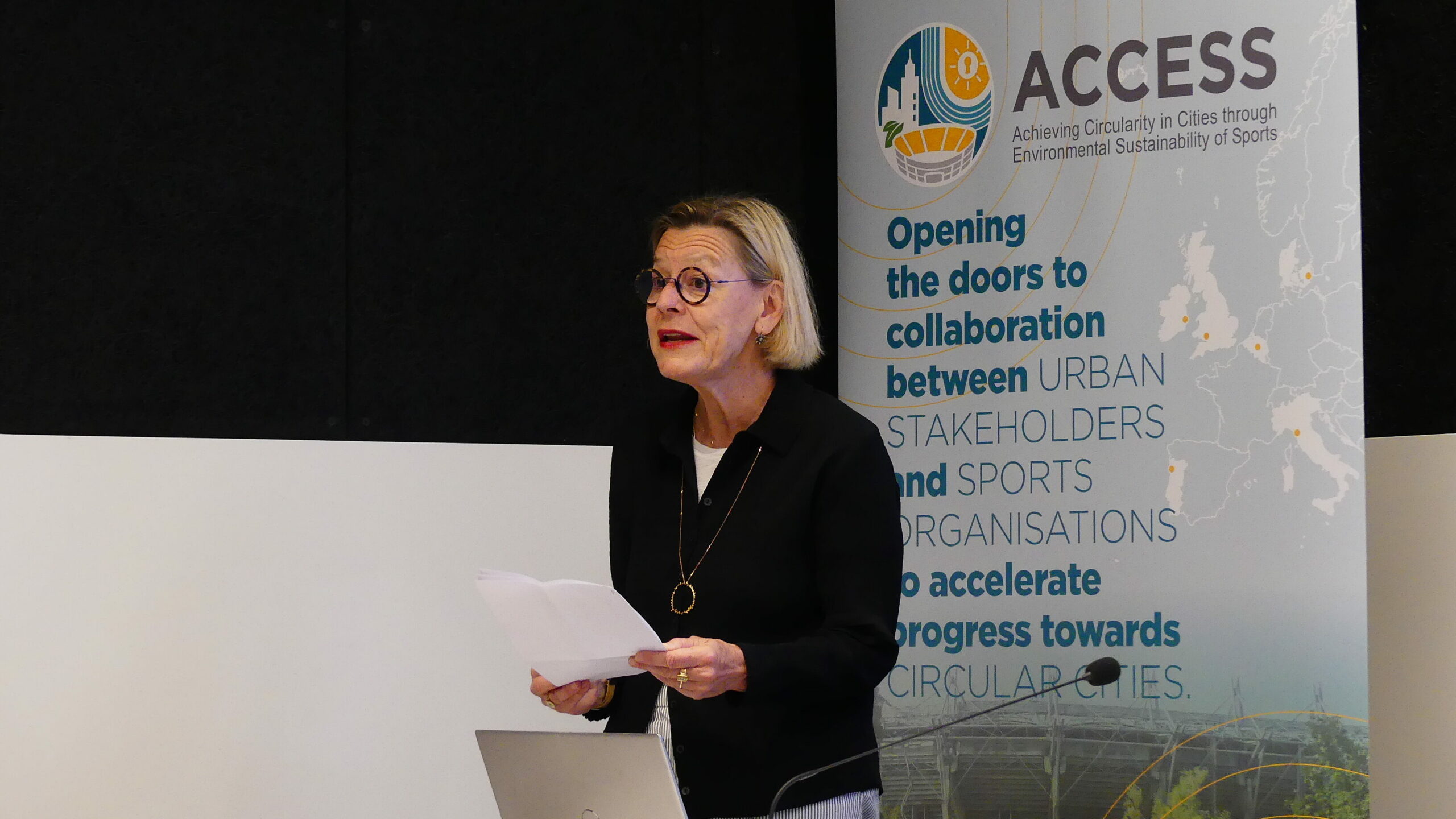
Welcoming the audience of nearly 40 participants inside the Stadium’s Press Room, Françoise Bonnet, Secretary General of ACR+, opened the day with a speech that recalled the evolution of activities by cities and local authorities to increase sustainability in sport. She reflected on the involvement of ACR+ in such projects, noting the association’s growing expertise in public behavioural shifts, resulting from its work in sport. Calling on the power of sport to influence behaviour both inside and outside the stadium, Françoise extended a warm invitation to the cities of Brussels, Cardiff, and Copenhagen to join the ACR+ network.
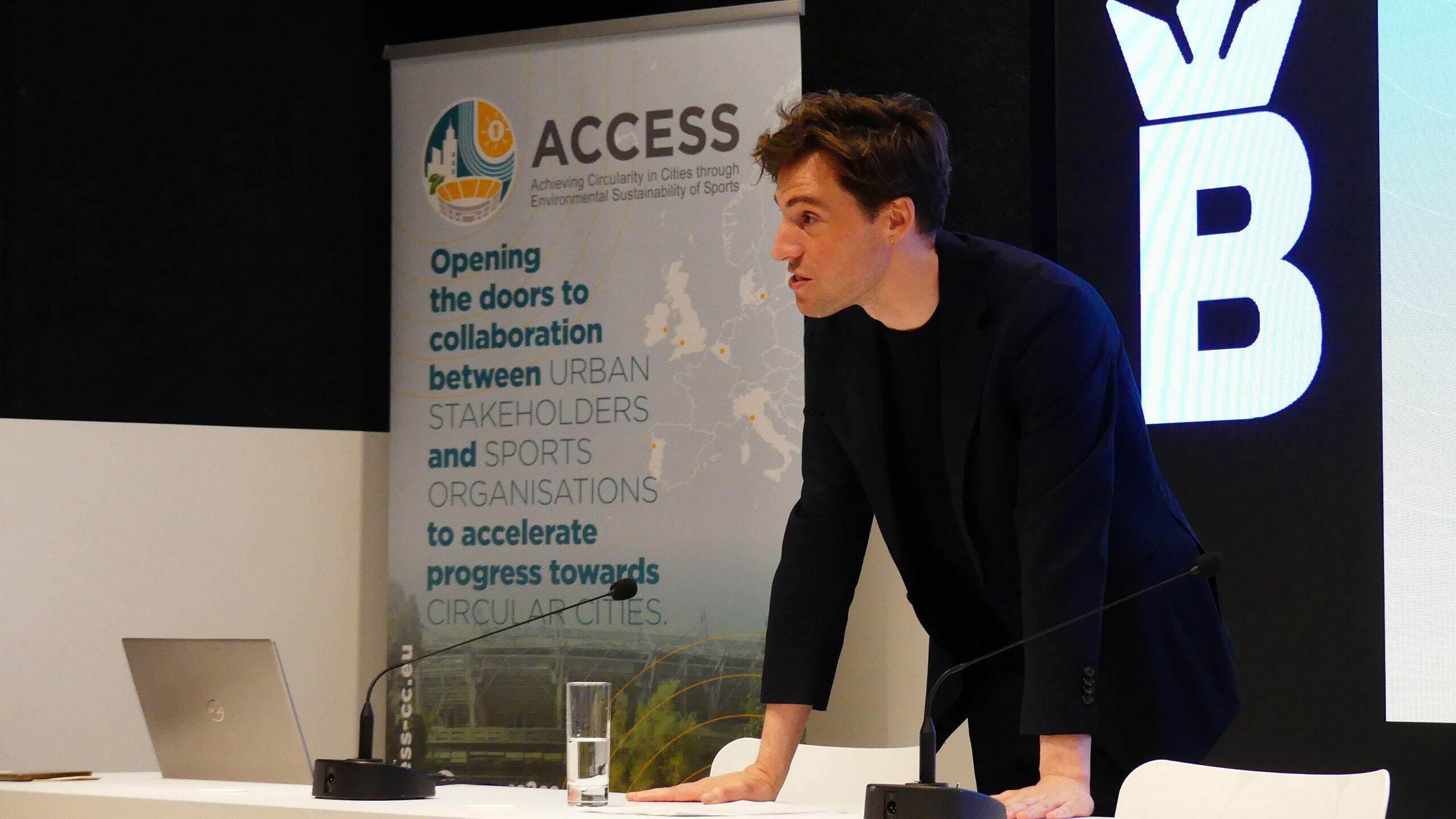
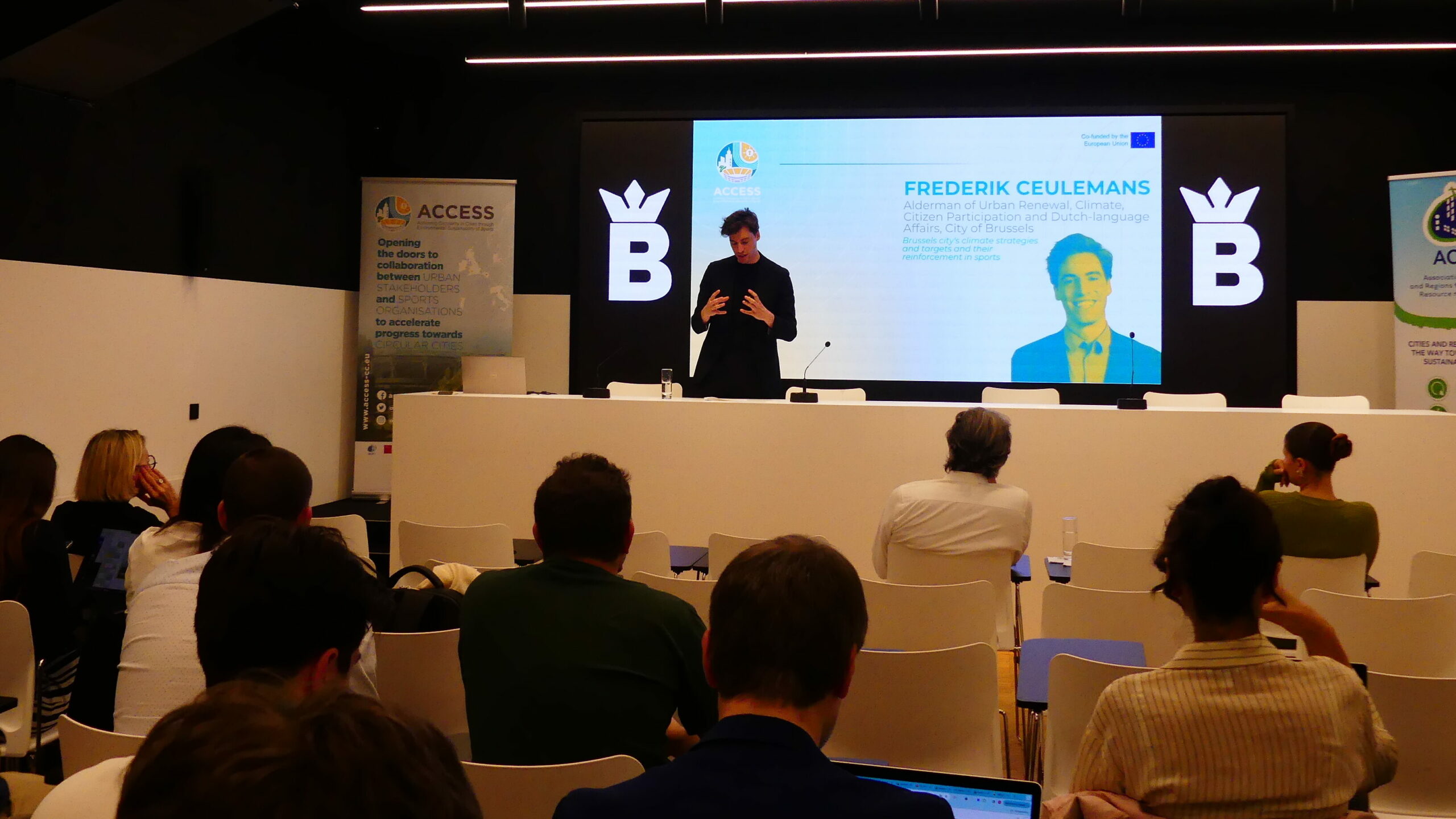
Following on, the floor passed to Frederik Ceulemans, Brussels City’s Alderman of Urban Renewal, Climate, Citizen Participation and Dutch-language Affairs. Smiling, Frederik “accepted” the invitation for his city to join ACR+ and began his address reiterating the influence of sport in Brussels. Not only a means to unlock urban renewal and economic mobility, Frederik described how sport can create the community mindset needed to tackle climate challenges. He named the new Mandela Stadium in nearby Neder-over-Hembeek as well as the central Cynthia Bolingo sport centre as two beacons of sustainable sport. The former was explicitly designed to preserve biodiversity, while the latter was funded by Sustainable Neighbourhood Contracts programme and features 348 solar panels, a rainwater recycling system, and a vegetable garden open to local residents.
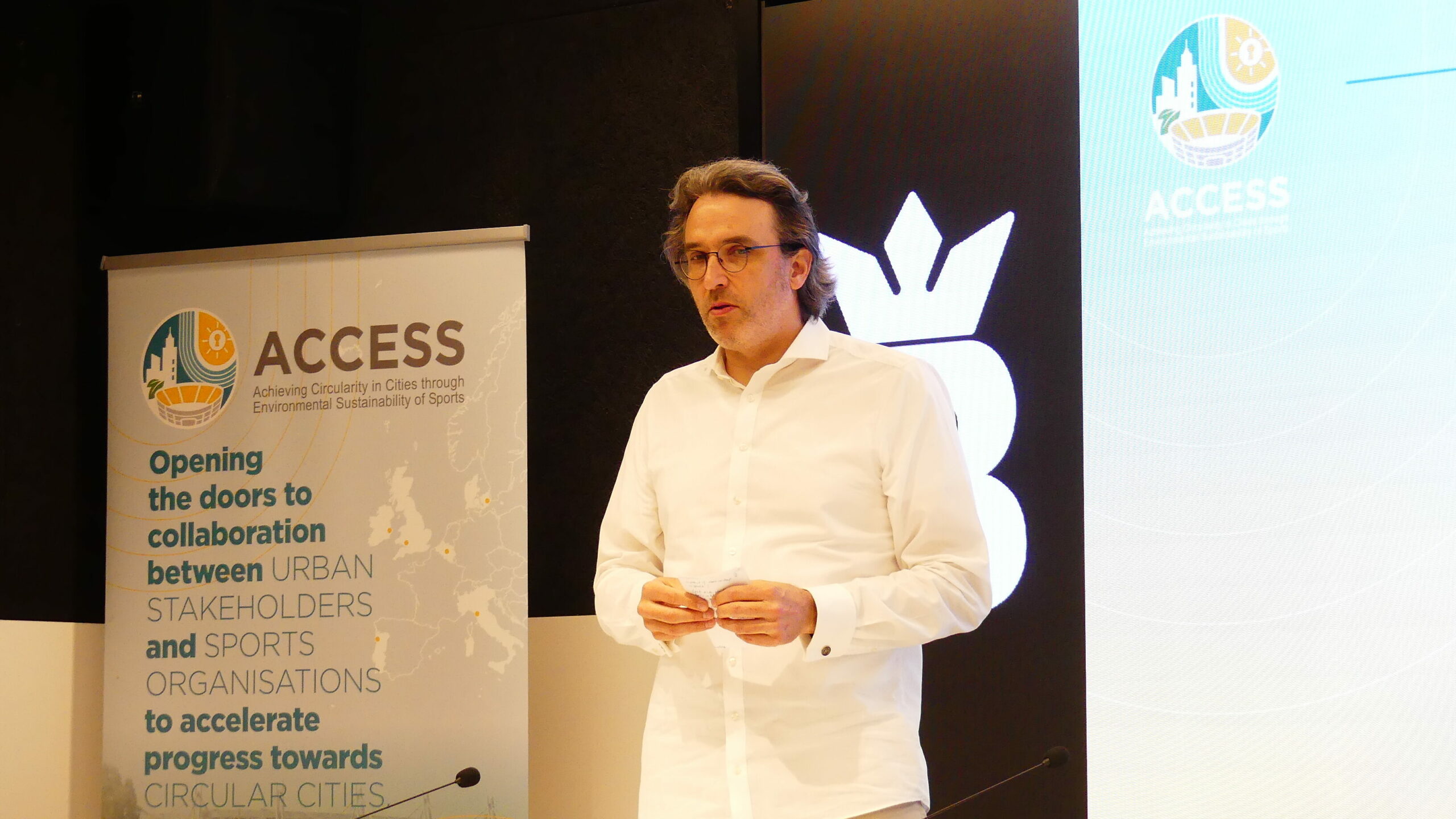
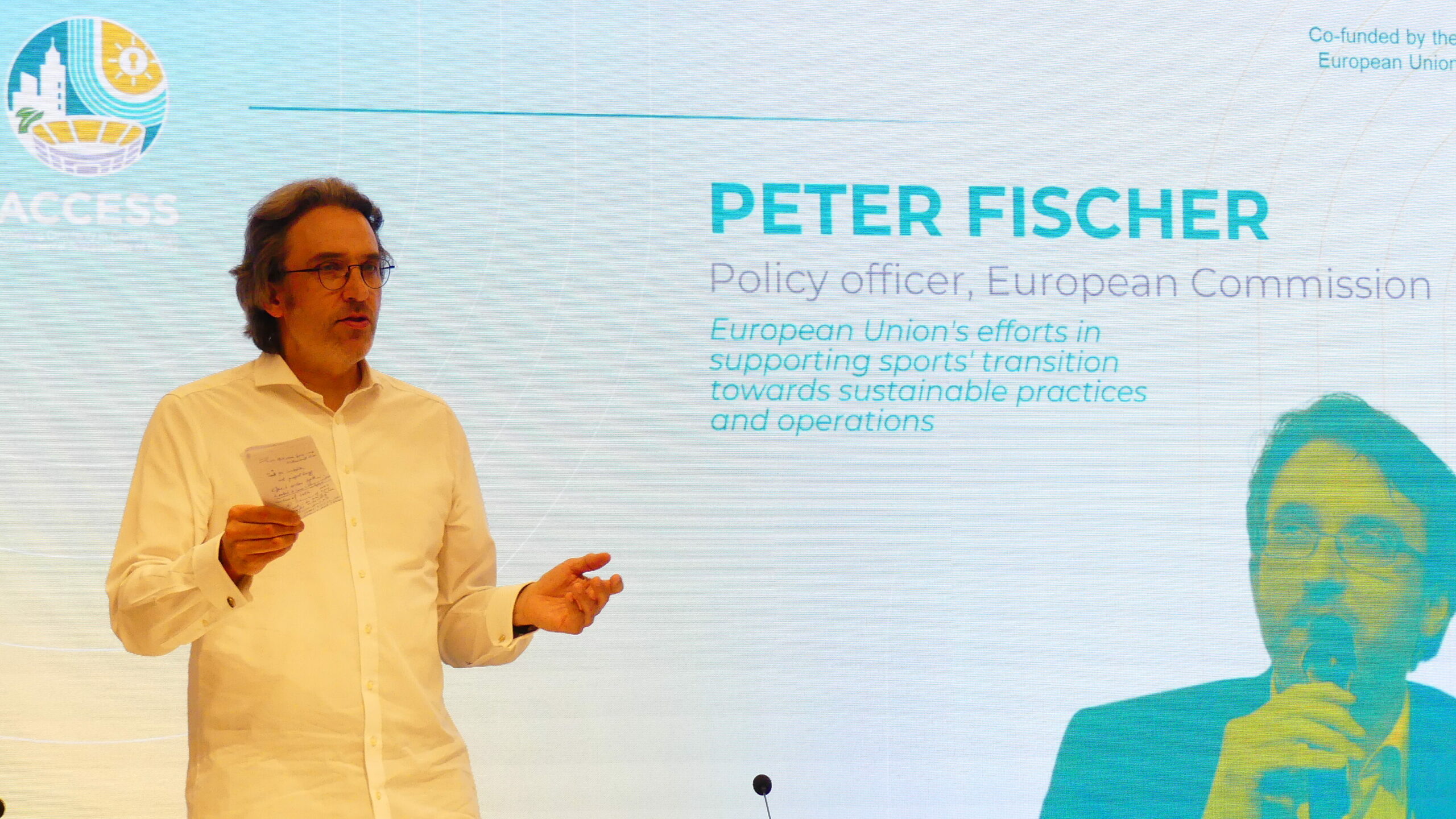
The third keynote speaker was Peter Fischer, who is a policy officer at the European Commission’s sport unit who works closely with dozens of projects funded by the ERASMUS+ programme – the fund which supported ACCESS, too. Peter explained that, in the European Commission’s SHARE 2.0 initiative which promotes sport as a development tool, the most sought-after information concerns green and sustainable sport. He also announced that the executive is set to publish a manifesto on environmentally sustainable European sport on 5 June 2025.
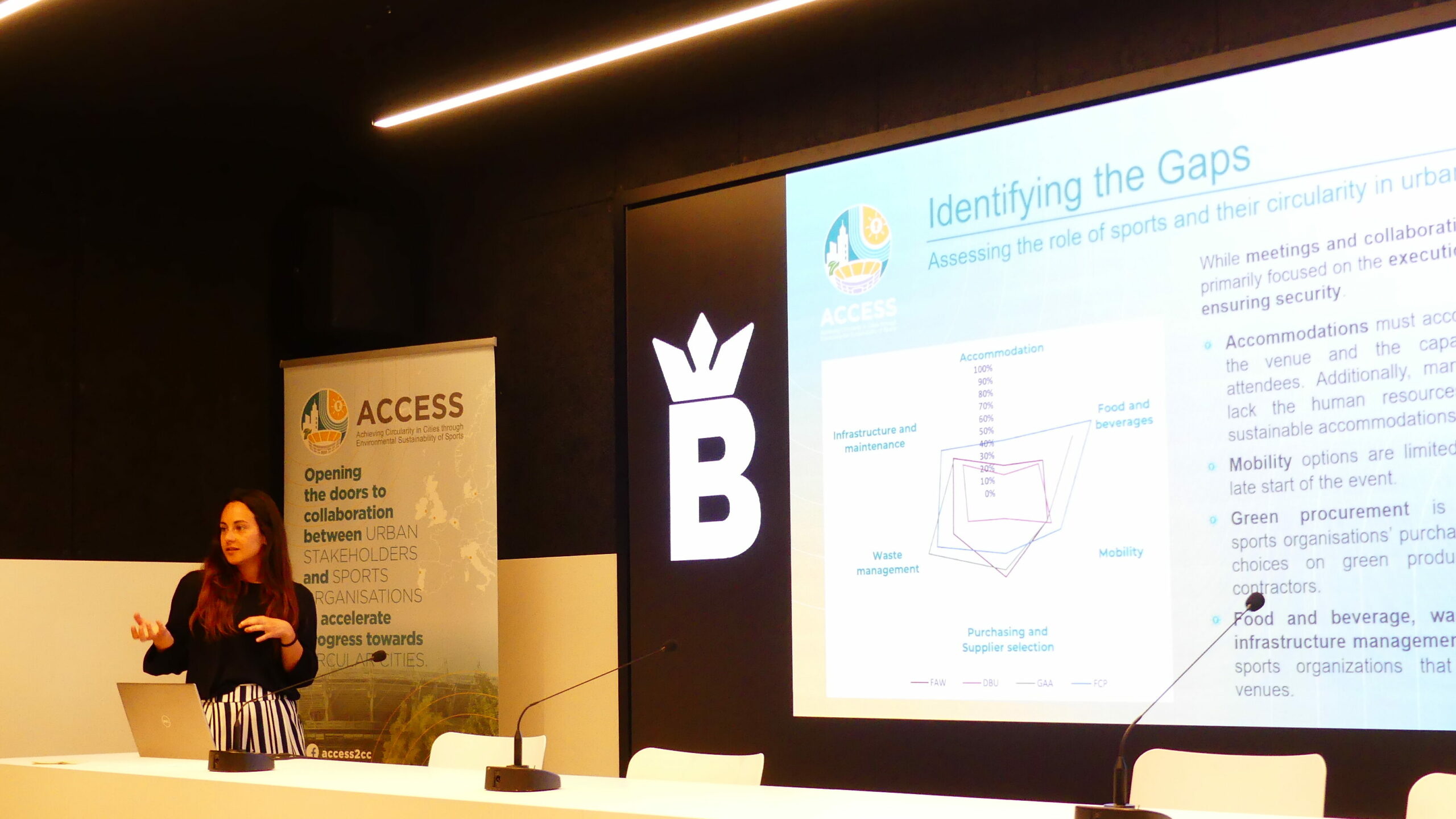
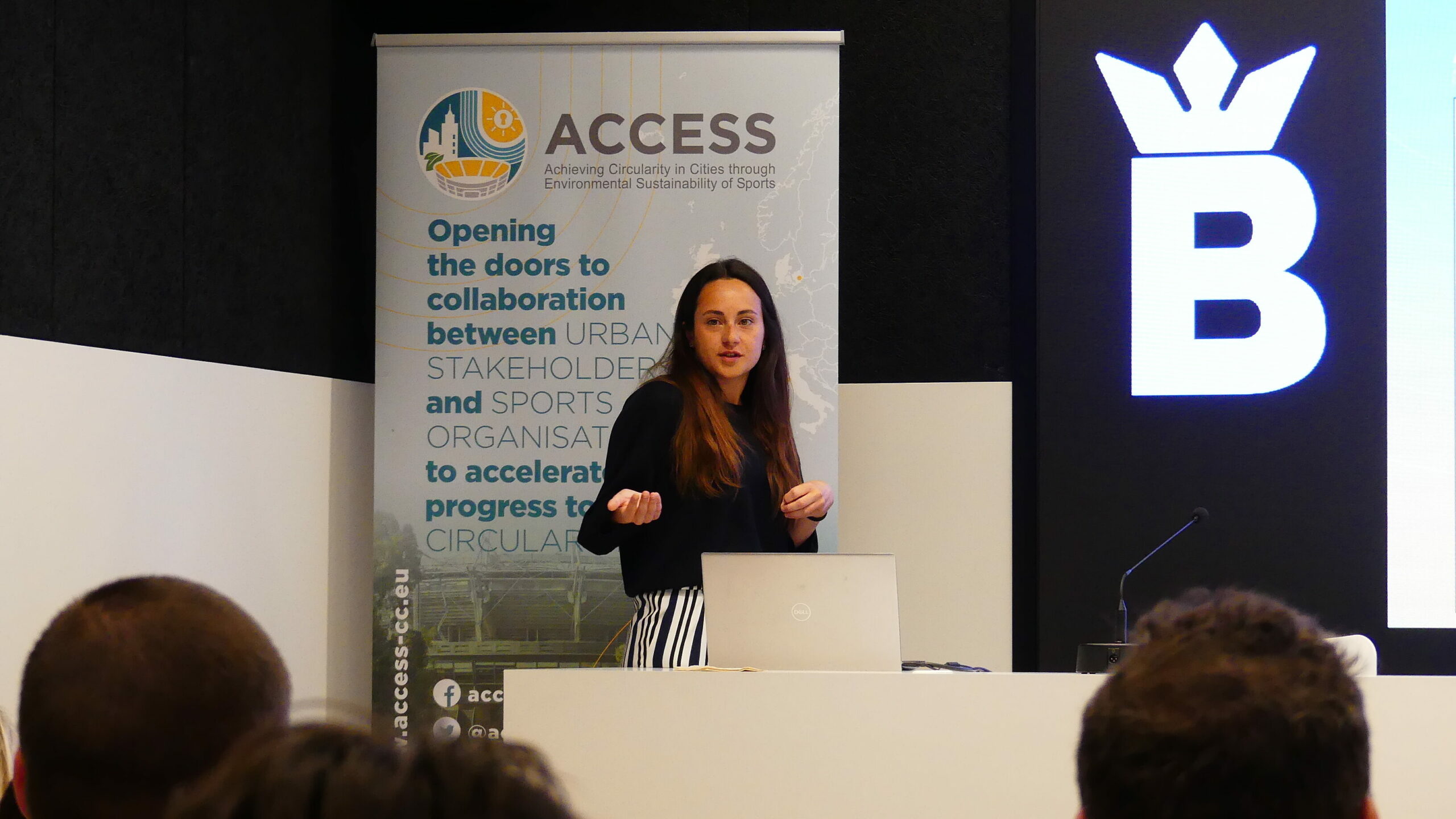
The event then passed to four presentations on ACCESS project outputs which marked the different phases of the project and produced most of the replicable outputs, tools and publications.
On behalf of Sant’Anna School for Advanced Studies in Pisa, Annamaria Pesci covered the initial phase of the project where extensive scanning, auditing and baseline assessment were done in order to understand the state of art and identify hotpots and improvement potentials. She highlighted the site visits coupled with interviews and the Key Performance Indicator assessment. These were the inputs which were fed into the Circular City Committees in the participating cities. While the outcomes of these were presented in a dedicated report, the tailor made KPI tool was also made available on the project’s website – covering 6 sections of operations and governance, including accommodation, food and beverage management, waste management, infrastructure maintenance and green procurement.
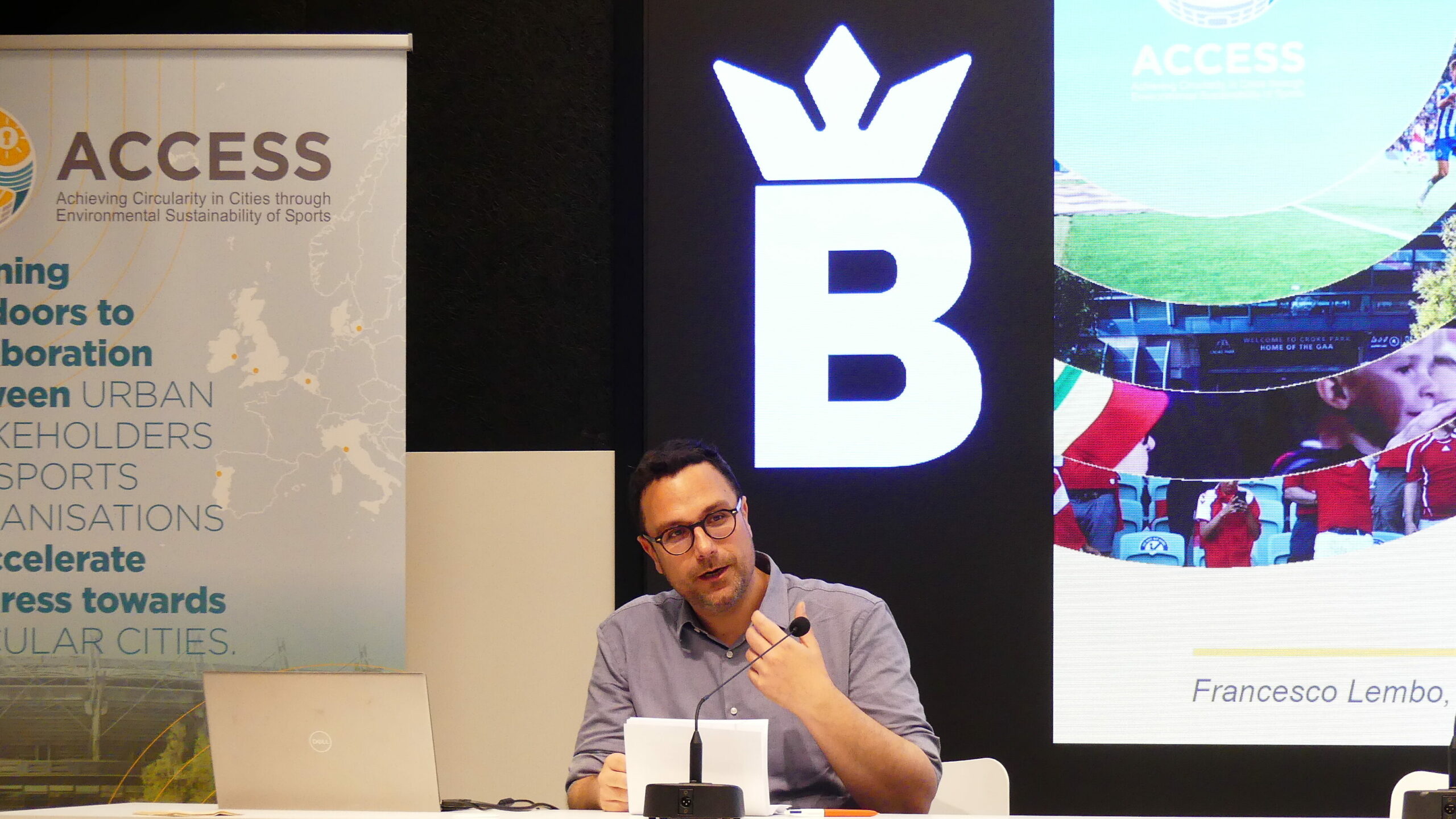
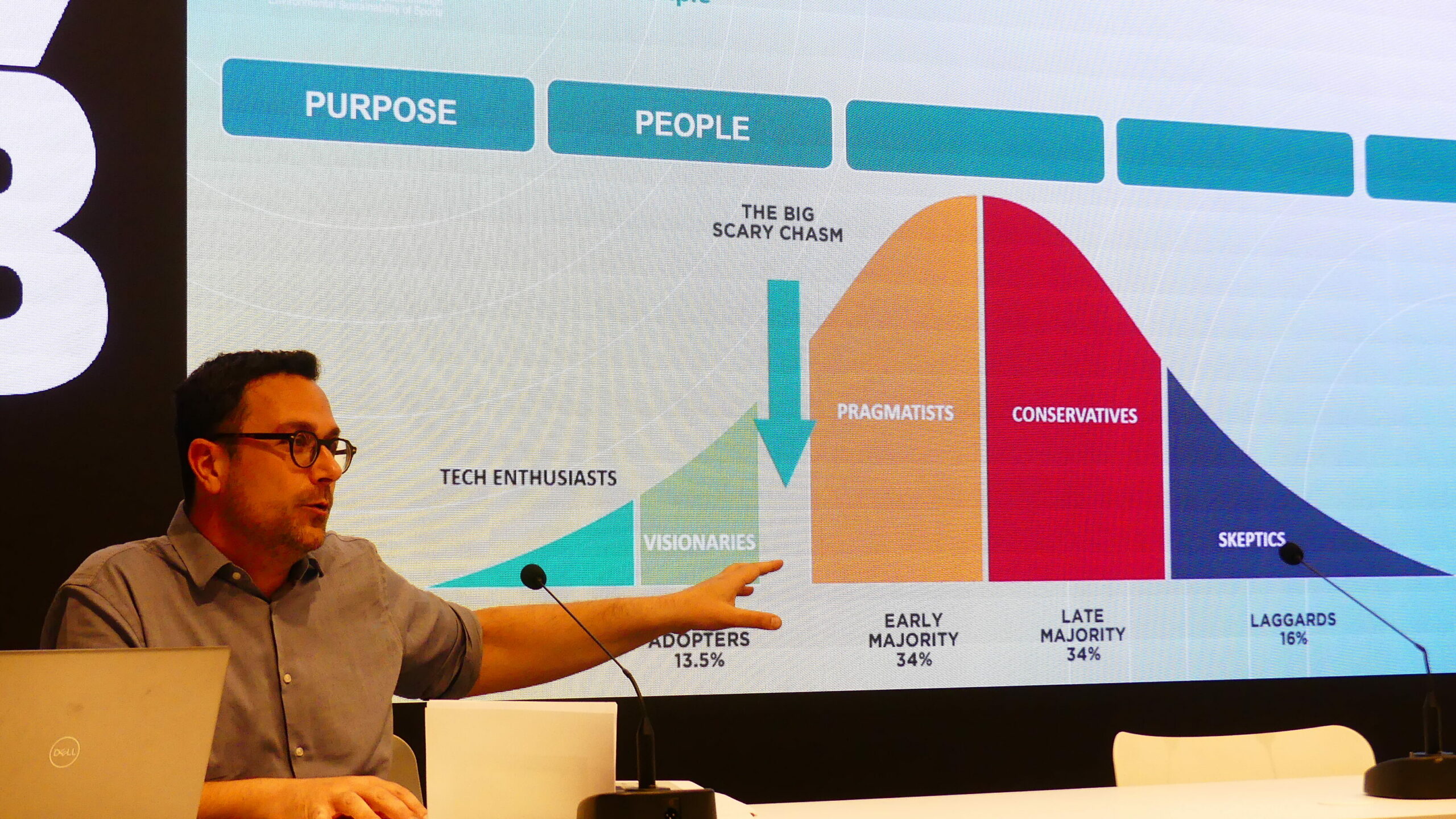
Speaking of the Circular City Committees, Francesco Lembo of ACR+ explained the concept of communities of practice which were chosen as the principle for the four Committees in Denmark, Dublin, Porto, and Wales which brought many actors together under a common purpose. Francesco’s presentation touched on the importance of integrating early adopters and weaving together stakeholders from multiple backgrounds (public sector, NGOs, private sector, educators, youth…) through discussion, activities, and learning. He also highlighted the various risks, threats and key moment in a lifetime of a community of practice and provided empirical suggestion how to prevent them from affecting negatively the processes.
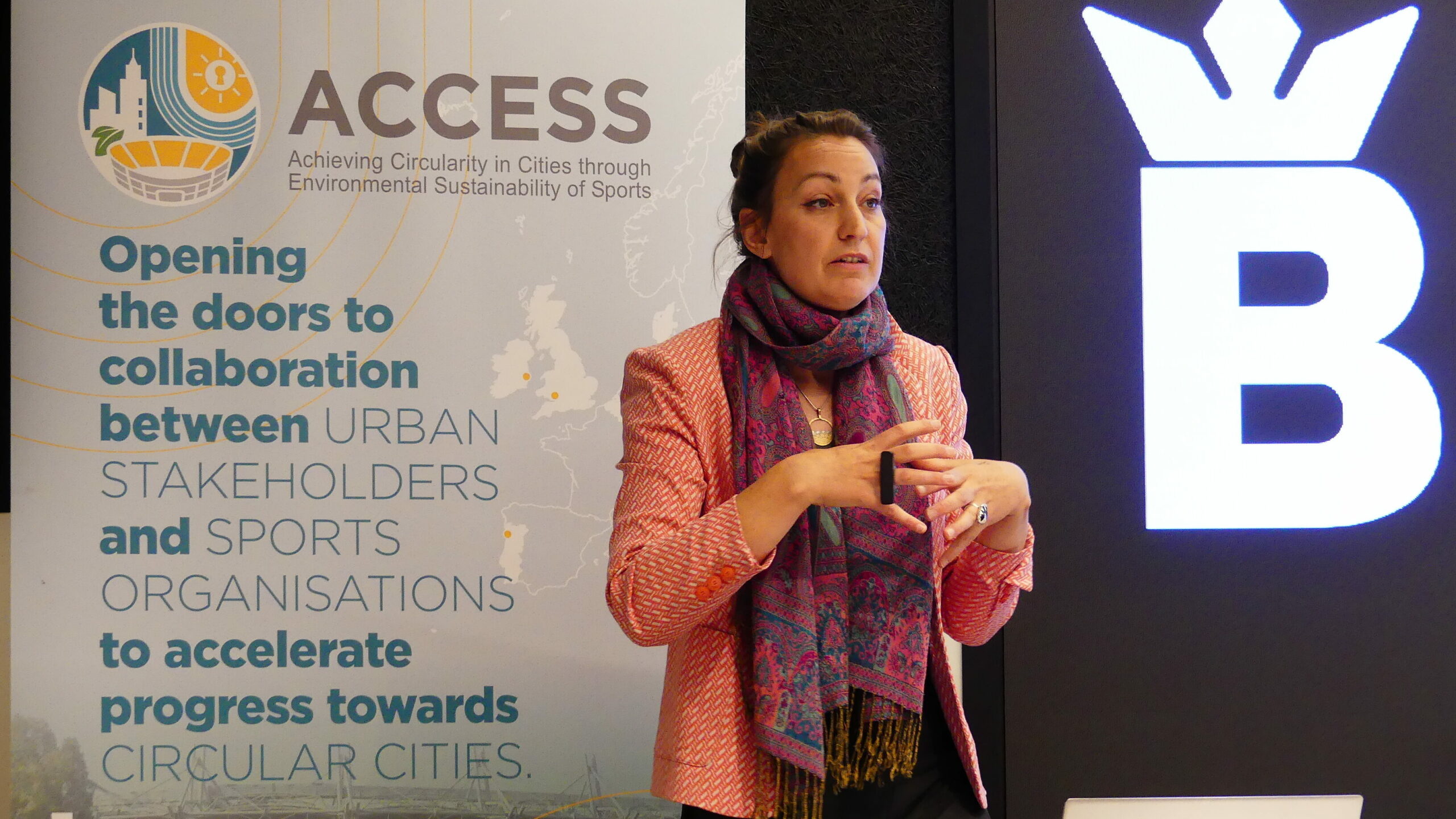
The third phase of the project which saw a set of community outreach and engagement activities was covered by the Gaelic Athletic Association and their Green Club advisor Míde Ní Shúilleabháin. The GAA’s Green Club initiative has helped to deploy and replicate the sustainable activities of ACCESS across Ireland – especially in rural places where the GAA’s community stewardship is most apparent. Remarking that 44% of European adults are active at least once a week, that 12% are members of a sports club, and that 10% volunteer at sporting events, Míde determined the added value of ACCESS and its project outcomes. She recalled how, by engaging in thematic mappings of their sustainability activities, clubs were able to future-proof themselves against climate risk, increase the security of their finances, entrench communities, and identify necessary infrastructure investments. Finally, she imparted the wisdom that when clubs lay the groundwork for sustainability, community engagement will flourish.
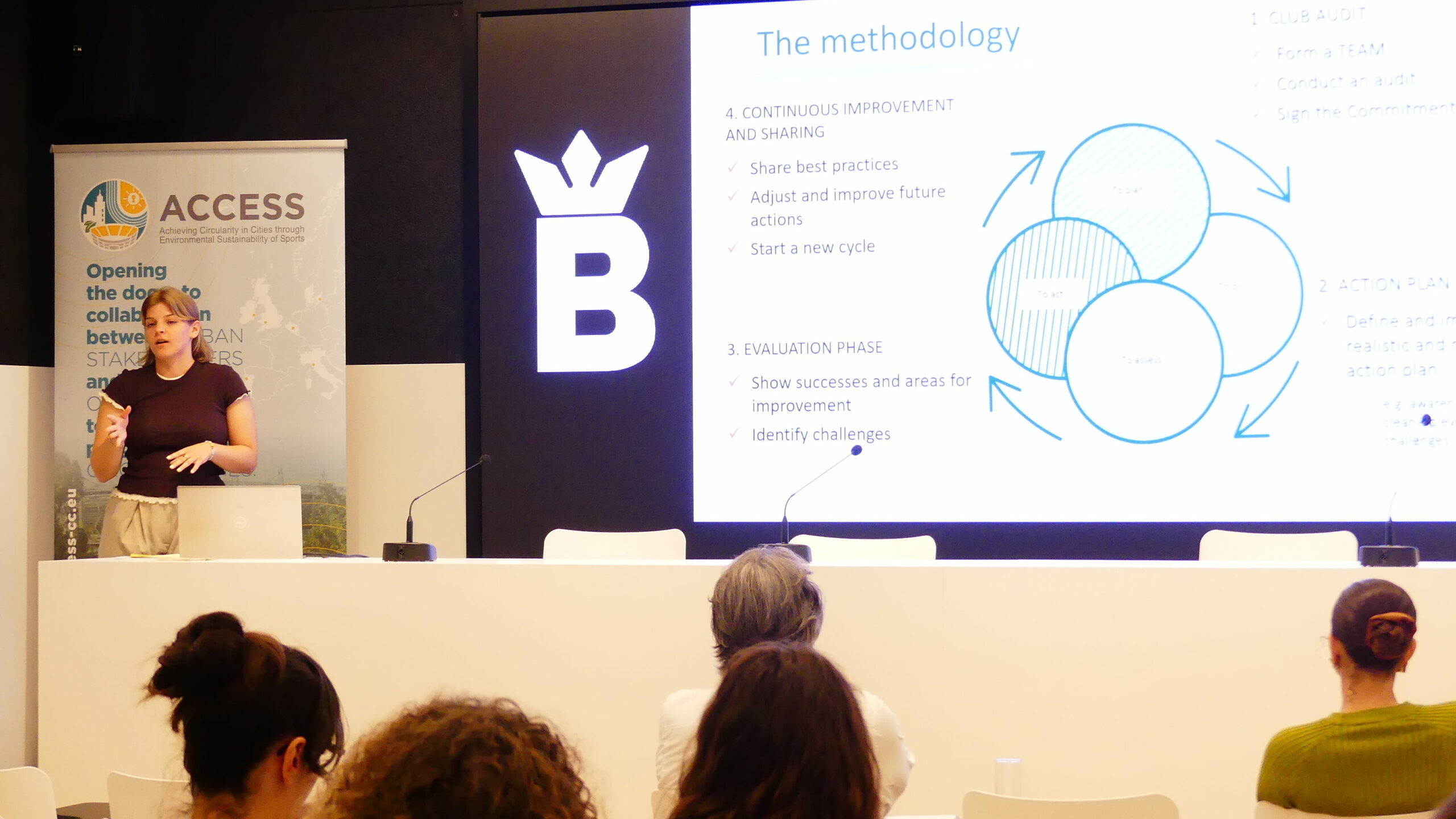
Finally, as an invited guest for this session, due to similarities with the ACCESS project, Lou De Win of the Belgian Be WaPP shared her experience preventing waste and litter among amateur football clubs in Wallonia via Be WaPP’s “Cleaner Clubs” programme. Lou explained how the initiative uses a holistic approach, involving clubs’ wider stakeholders including players and coaches, but also their families and supporters, thereby creating social buy-in among all citizens in the southern Belgian region.
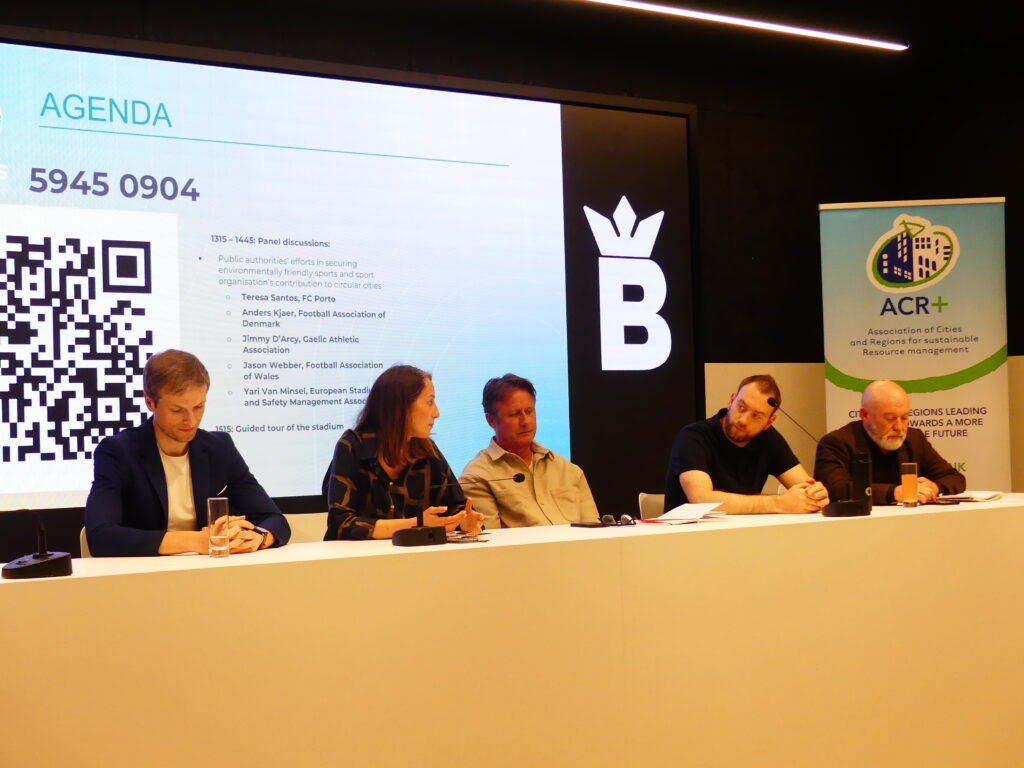
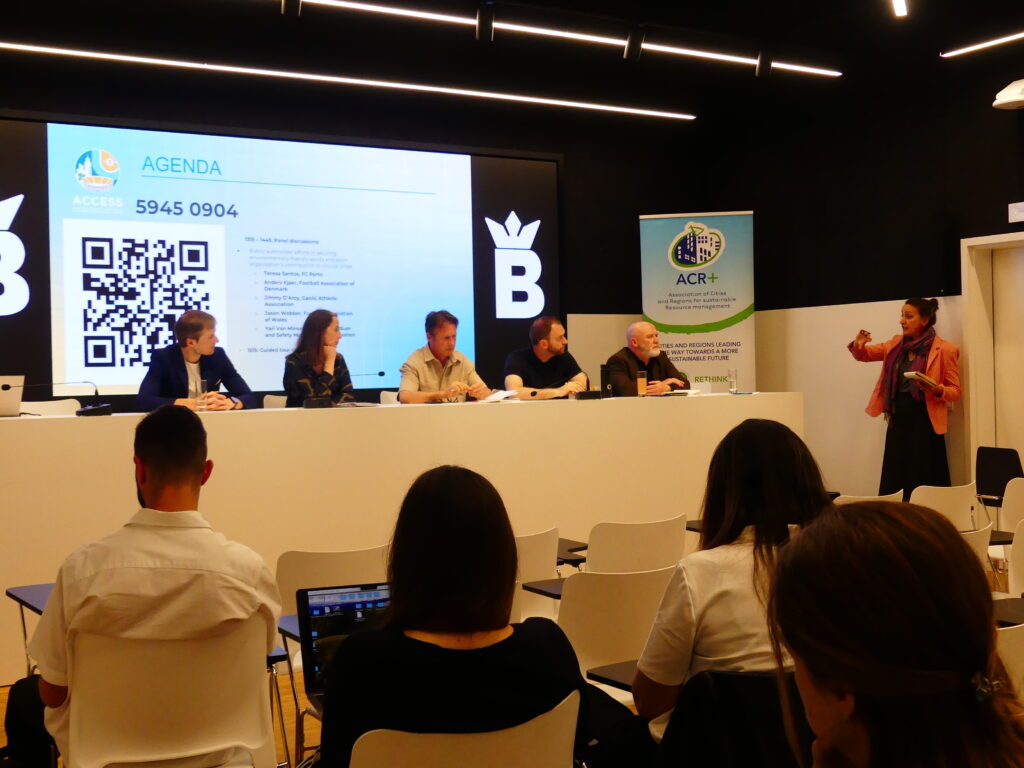
After a break for lunch, the conference resumed with an engaging panel discussion that brought together representatives from FC Porto, the Football Associations of Denmark (DBU) and Wales (FAW), the GAA, and the European Stadium & Safety Management Association (ESSMA). The panel was moderated by Míde Ní Shúilleabháin and ACR+’s Ernest Kovacs.
During the panel, Anders Kjaer (DBU) explained how his organisation uses the national team stadium to communicate sustainability to fans – but not during games; they found that the messaging resonates better outside of matchdays. He explained how the DBU conducts interviews with fans about supporters’ expectations from the organisation regarding sustainability. However, the interviews show that fans struggle to conceptualise a large organisation’s sustainability pathways in comparison to those of their own private domicile. Furthermore, Anders explained how female athletes are more amenable as role models because they are less likely to be impeded by corporate contractual obligations that can be a barrier for male leadership.
Jason Webber (FAW) described the situation in Wales, where the Football Association does not legally own its principal stadium. He explained how mobility was a barrier for many fans because the last trains out of Cardiff would depart before the final whistle. But, by collaborating with the national rail service, they were able to ensure that trains carry extra carriages, depart at feasible times for fans, and overall prevent the use of motor cars. A key topic, Jason described how FAW estimated that between 70-90% of emissions related to their events were the result of unsustainable transport.
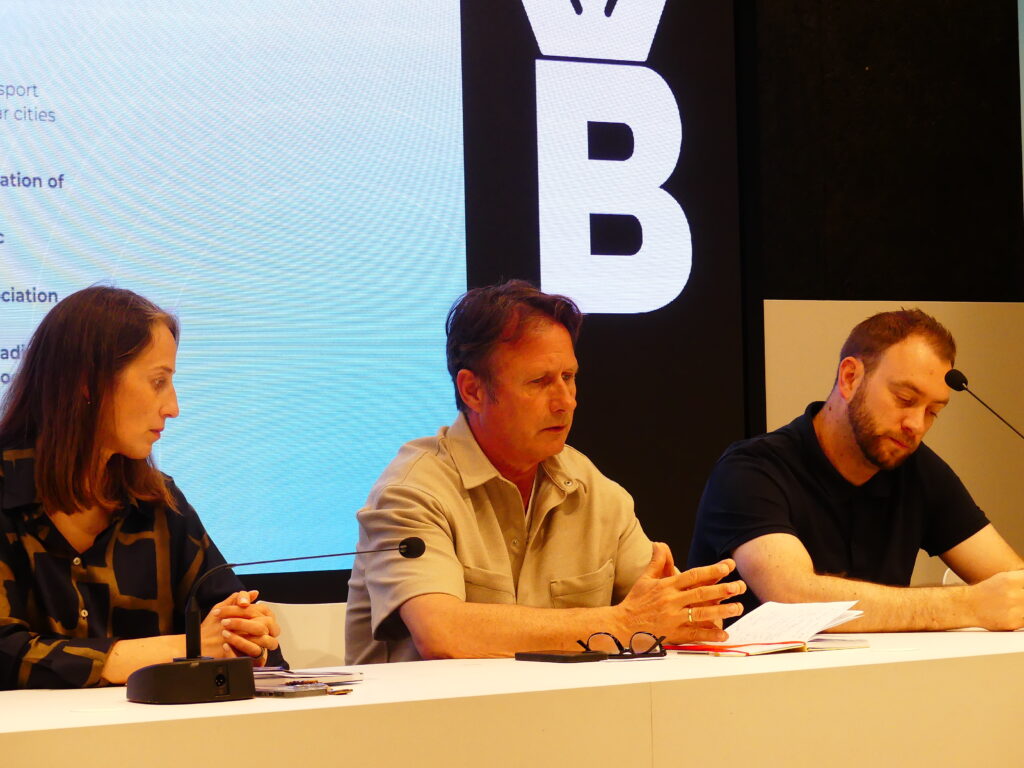
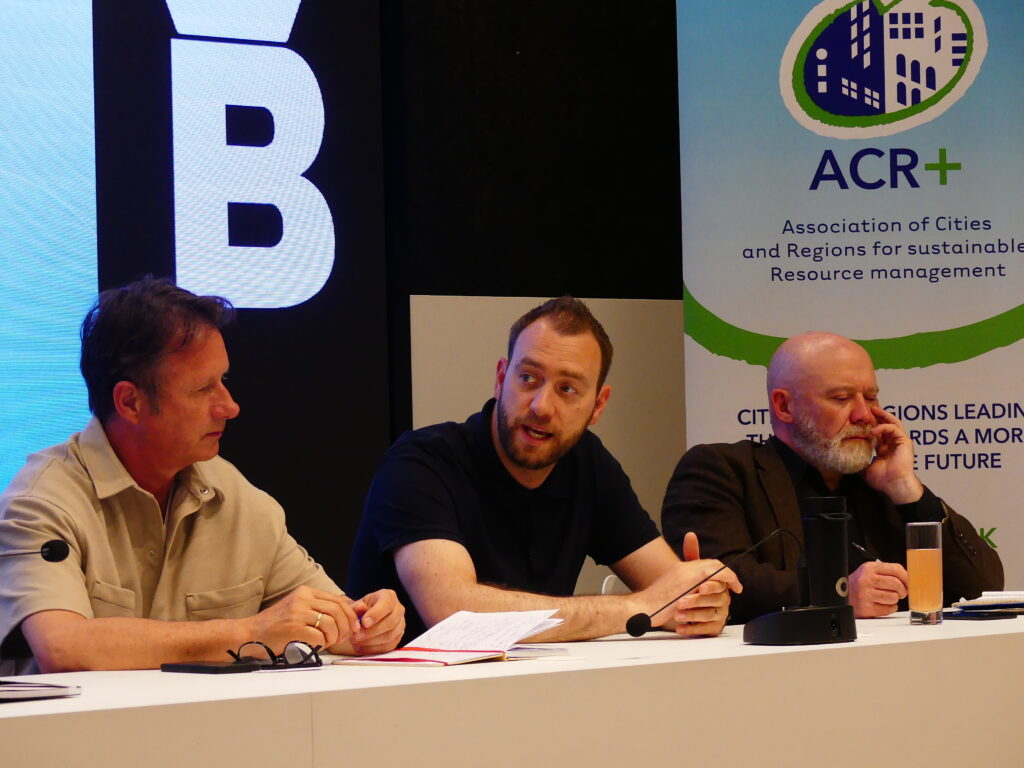
Teresa Santos (FC Porto) explained that FC Porto has conducted partnerships with local authorities (and ACR+ members) LIPOR on energy, water, and waste projects. She described how the club’s ownership of the Dragão Stadium enabled the creation of an energy community, as well as a second energy community around the club’s training ground. With more than 2,000 solar panels generating over 1,500 MWh per year, the utilisation of renewable energy allows FC Porto to reduce carbon dioxide emissions by 420 tonnes per year – all while benefiting the local population. Regarding waste, Teresa explained the club’s decision to use a single design for their drinking cups – despite commercial considerations that would prefer different designs be available at matches of different competitions. Still, by prioritising sustainability over marketing, the club embeds circularity principles right from the design phase.
Jimmy D’Arcy (GAA) elucidated the stature of the GAA’s stadium, Croke Park, as a beacon for the wider organisation. He explained how a community of practice was formed with employees, local residents, and public authorities combining to create a green mobility scheme that disincentivises the use of motor cars. On textiles, the audience heard how about the GAA establishes gear swap schemes for children, in order to retain the value of sportswear and equipment as children outgrow their old apparel. On the same subject, Jimmy recognised that children can often pioneer sustainable behaviour among adults. Through education and outreach, he said, the enthusiasm of children can inspire parents and therefore instigate wider behavioural change.
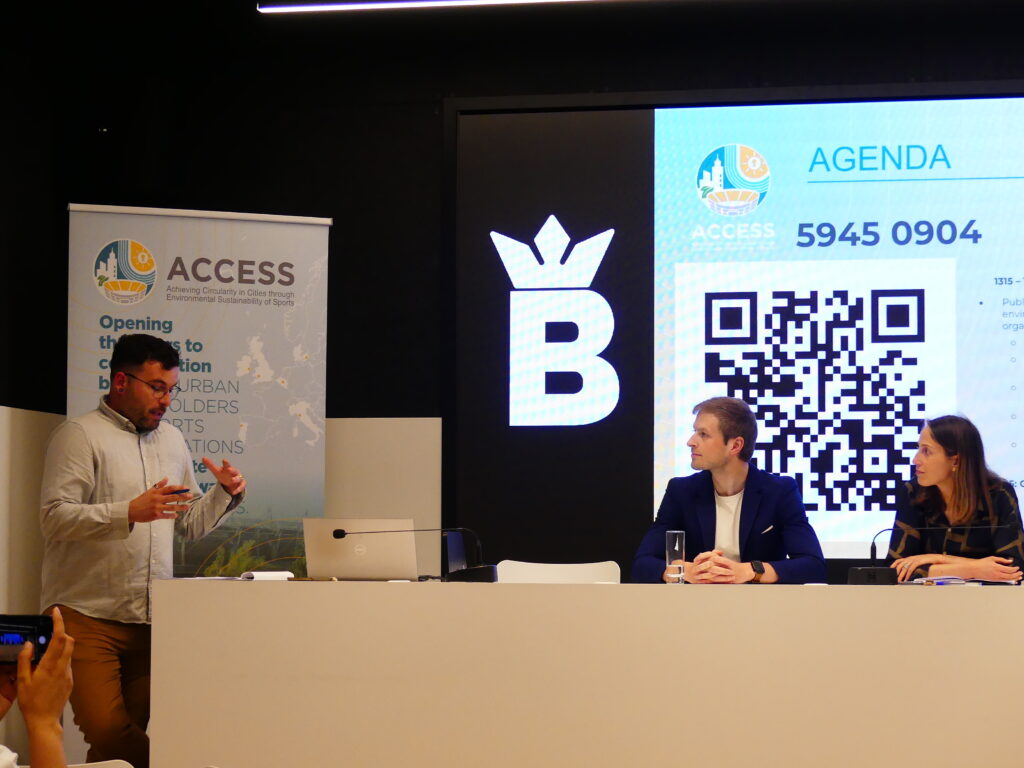
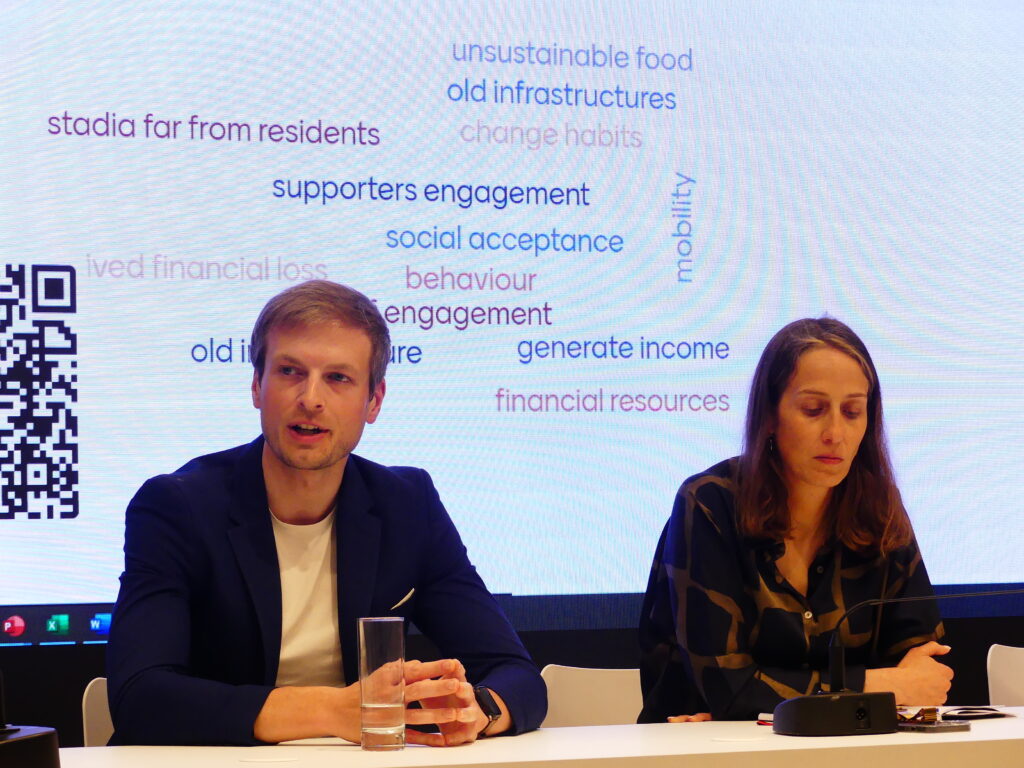
Yari Van Minsel (ESSMA) provided the perspective of 300+ European stadia of all sizes. Like in the Dragão, he described how some ESSMA members in the Netherlands created district heating systems around their clubs. In other places, ESSMA collaborated with local public transport operators to provide free mobility for match-going fans, and pioneered food waste management systems that generate compost for local farmers near the stadiums. Yari noted that multi-use stadia generate different types of waste, and therefore necessitated unique strategies to cater for concerts, afternoon rugby matches, evening soccer matches, etc. Therefore, the importance of tailored circularity strategies and best practice exchanges was confirmed.
Ultimately, the ACCESS final conference showed that, when it comes to sustainability in sport, we are all on the same team. Collective action in communities of practice can inspire stadiums and the thousands of fans who inhabit them toward truly circular lifestyles. At the same time, thoughtful leadership is required. The ACCESS project partners are pioneers of sustainable sport, but the transition to circularity remains a marathon – not a sprint. That is why Ernest Kovacs, ACCESS project leader at ACR+, suggested in his final remarks that further collaborations would be welcome to take circularity even further – a notion welcomed by all the project partners.
To conclude: Sport is not just a game. It is a game-changer.










